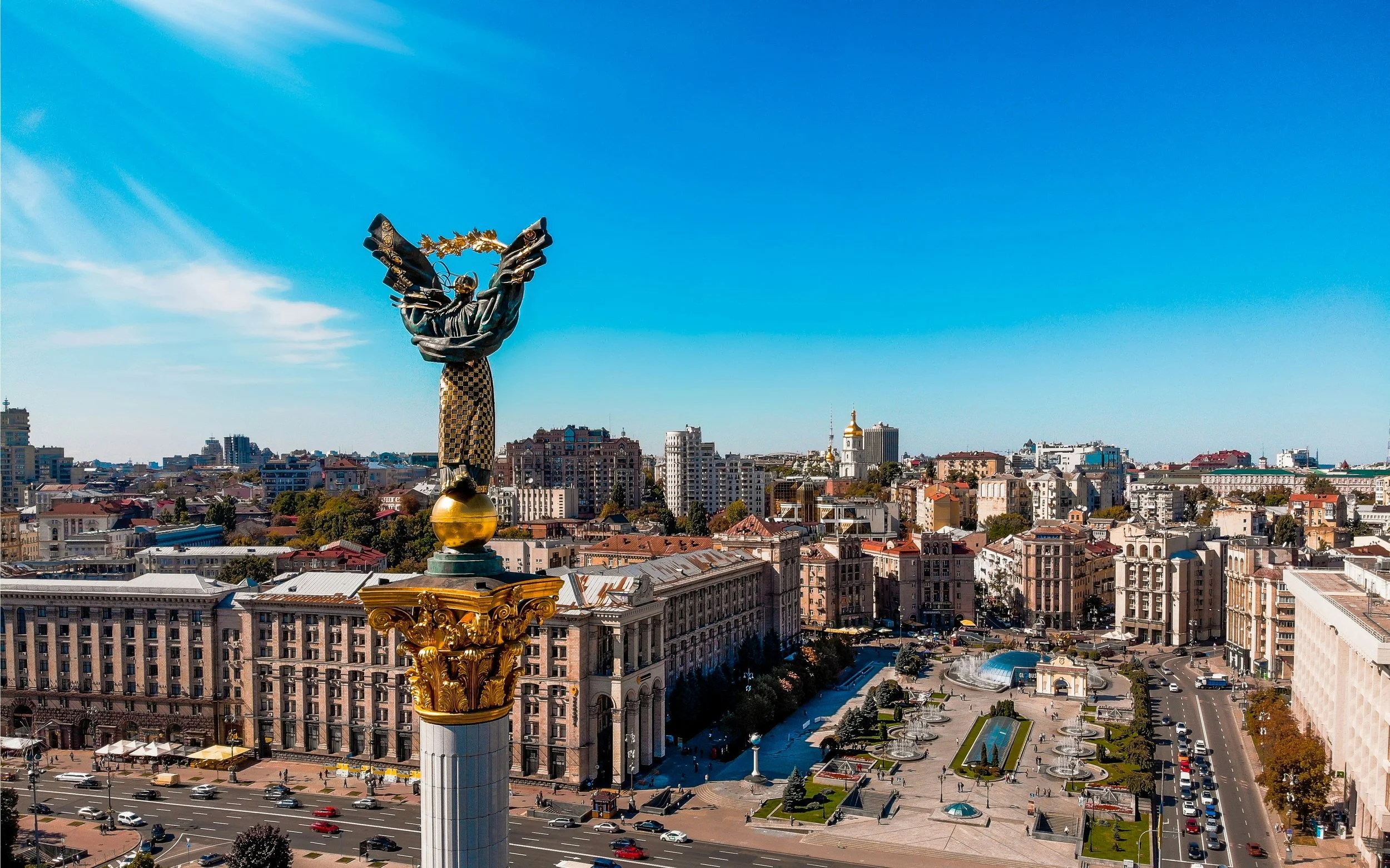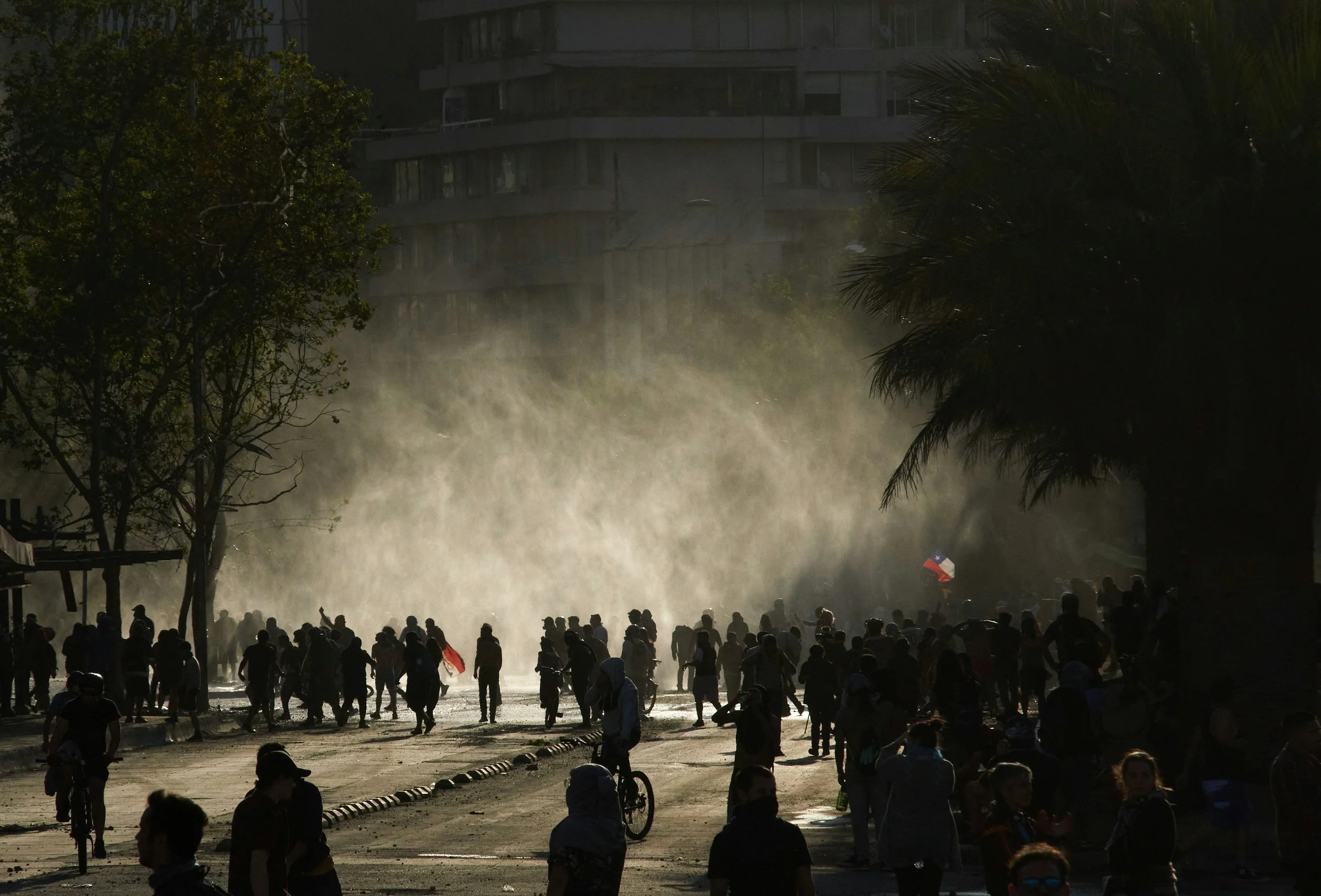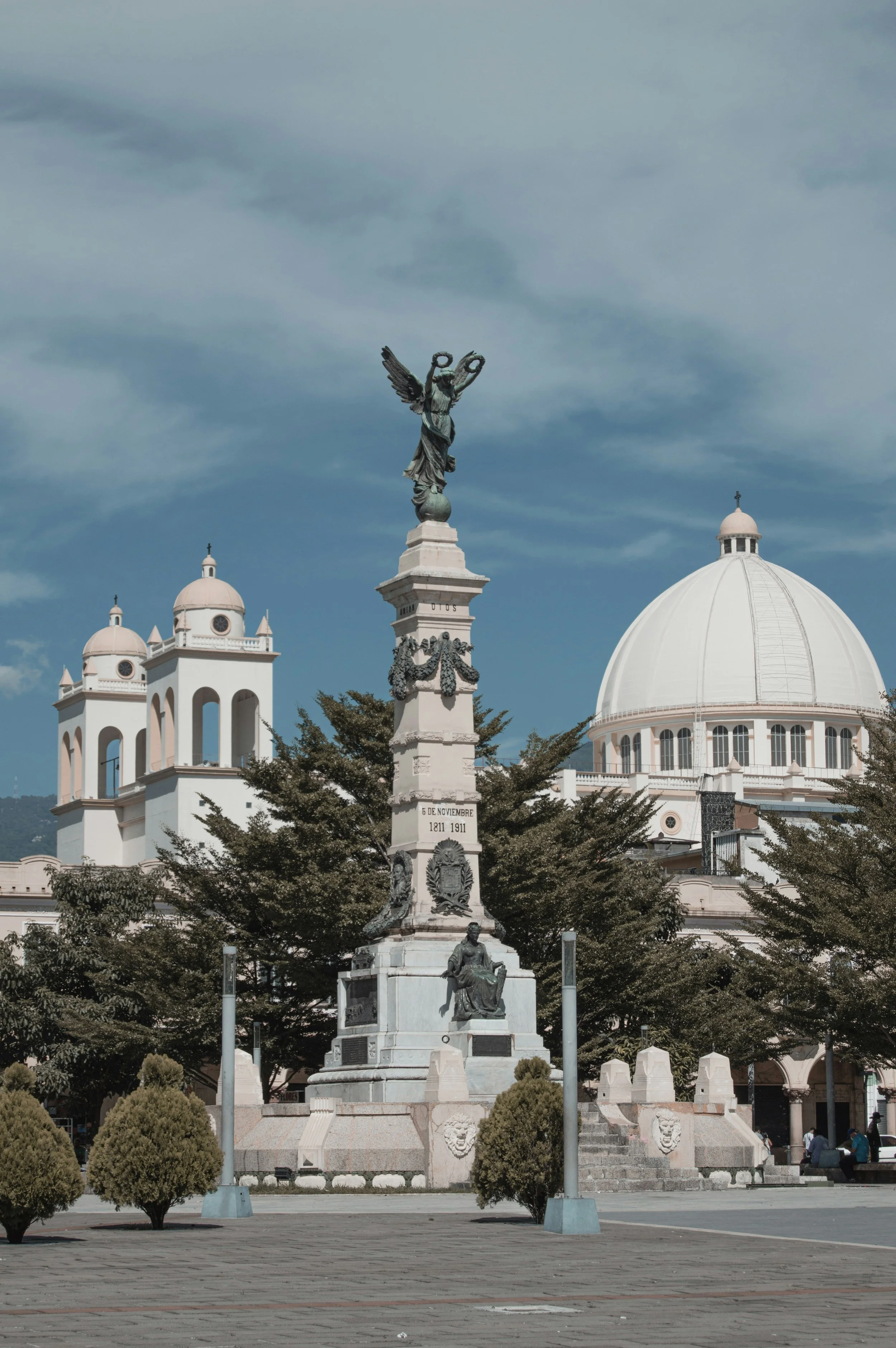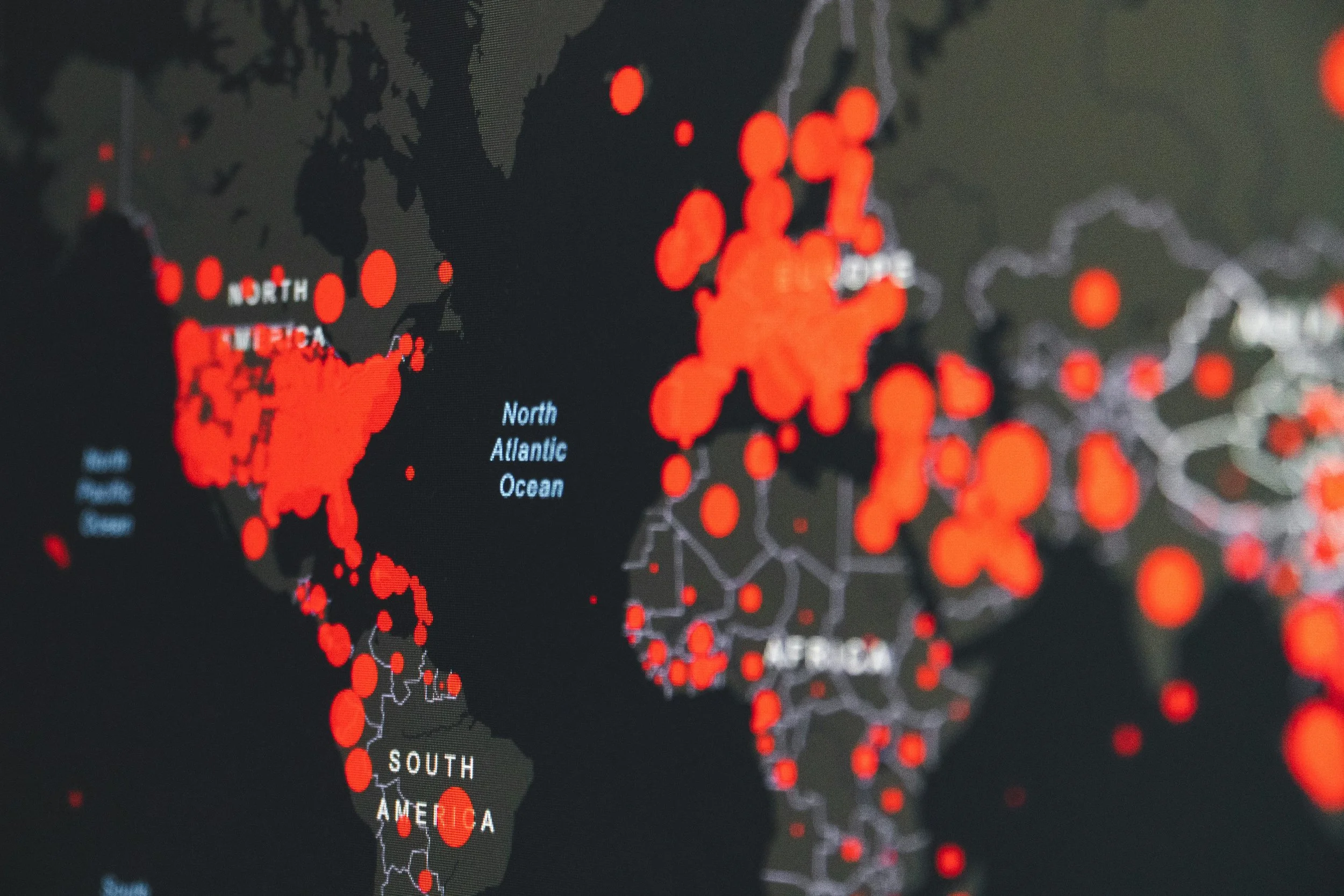
All Content
Welcome to the Institute for the Study of States of Exception (ISSE) main content page, a single source for all posts from the Institute, including commentary on global events, book reviews, academic literature, links to our podcasts, and additional resources. Check back regularly for more content from us.
“Sovereign is he who decides the exception.”
— Carl Schmitt (Political Theology: Four Chapters on the Concept of Sovereignty, 1922)
The Right to Freedom of Expression of Political Views in the Context of Armed Conflict: Current Human Rights Challenges
ISSE Comment: This article is included on the ISSE website because it examines the treatment of fundamental rights within the broader context of armed conflict and emergency governance. Although it does not focus on the formal exercise of emergency powers, it provides a detailed analysis of how freedom of political expression is regulated, limited, and justified during periods of heightened security concern, and in this instance, under martial law. The study contributes to ISSE’s research agenda by illuminating how international legal standards, domestic legal frameworks, and institutional practices interact under crisis conditions, offering valuable insight into the protection of democratic rights during and beyond emergencies.
Abstract: The article is devoted to a comprehensive study of the right to freedom of expression of political views during armed conflict. It examines the nature of this right as one of the fundamental elements of a democratic society, defines its content, functions, international legal guarantees, and national mechanisms for its realization and limitation. Given the ongoing armed aggression against Ukraine, the issue of the permissible limits of state interference in freedom of expression under the pretext of national security protection has become particularly relevant. The article analyzes the norms of international law, including the provisions of Article 19 of the International Covenant on Civil and Political Rights (ICCPR), Article 10 of the European Convention on Human Rights (ECHR), recommendations of the Council of Europe, and the positions of the OSCE, the United Nations, and leading international organizations such as ARTICLE 19 and CPJ. Special attention is given to the case law of the European Court of Human Rights, which establishes key approaches to the protection of political expression even under crisis conditions. The study presents a number of real-life examples from the Ukrainian context, such as the blocking of media outlets by decisions of the National Security and Defense Council, illegal surveillance of journalists, administrative pressure on editorial offices, and increased self-censorship under martial law. These phenomena are analyzed in terms of their compliance with the Constitution of Ukraine and international legal standards. It is determined that the existing legal protection mechanisms are insufficient or ineffective, which threatens the democratic balance of power during wartime. The author proposes a set of specific measures to maintain the balance between security needs and freedom of expression, including the harmonization of national legislation with international standards, the creation of independent institutions to monitor restrictions on freedom of speech, the enhancement of legal and physical protection for journalists, the development of digital and media literacy among the population, as well as cooperation with technology platforms to ensure transparent content blocking procedures. It is concluded that the right to freedom of expression of political views plays no less important a role during wartime than in peacetime: it serves as a safeguard against authoritarianism, an indicator of governmental legitimacy, and a foundation for the post-war democratic reconstruction of the state. Ignoring this dimension not only violates Ukraine’s international obligations but also poses a threat to internal political stability in the context of national recovery.
The ‘Right’ Side of the Law. State of Siege and the Rise of Fascism in Interwar Romania
The aim of this article is to problematize one of the most audacious tenets of the new consensus, namely the revolutionary character of fascism, by linking together the experience of the state of siege and the emergence of the fascist movement in interwar Romania. It tries to do so by drawing on the philosophical underpinnings of the paradigm of the state of exception developed by Giorgio Agamben and Walter Benjamin’s critique of law and violence. In a first part my aim is to present the main arguments espoused in defending the view according to which fascist movements were professing an authentic revolutionary radical politics. Secondly, I will turn towards legal critique and to the work of Giorgio Agamben in order to build a topography of the relation between law and the force of state. In a third part I will focus on the uses and the historical meaning of the state of siege in post-First World War Romania. This article argues that the emergence of the fascist movement in Romania is an event strongly embedded in the political, legal and symbolic dynamics entailed by the state of exception rather than the expression of a revolutionary thrust.
An Overview of Federal Emergency Powers
When living in a time of crisis, it becomes easy to forget that our institutions have been through crisis before. That our institutions are still here and operating today is a testament to the fact that they are, on some meaningful level, resilient to incredible strain. This is, in large part, because they were designed to operate under this strain. While the Framers of the Constitution were undoubtedly working to build a government that operated effectively on a day-to-day basis, they were also preoccupied with creating a structure that could withstand extreme pressure, respond to threats, correct its own errors, and survive to work for the general welfare of the American people in the long run. One element of the constitutional design central to this resiliency is the availability of vast emergency powers to use in response to exceptional threats. Of course, no system is perfect, and no matter the intentions of the Framers, as American civilization has developed and expanded, so too has the complexity of our society and governmental structure. If the SARS-Cov-2 pandemic has shown anything, it is that there is great disagreement as to what the theoretical and actual limits of federal emergency powers are and ought to be.
“Emergency” is, of course, a very difficult legal concept to define and analyze, not least because it implicates an endless range of topics, from the very broad to the very specific. Emergency, and especially extreme and existential emergency, interacts with fundamental principles as the basis of sovereignty itself and the very nature of government and the state—if a government cannot adequately protect its people from a crisis, that government is not likely to survive. Still, as with any legal principle, the principle must be made to function in the real world, whether it be through constitutions, both written and implied, or through more mundane and routine statutory law. Complicating any analysis of emergency and emergency powers even further, there is not only no agreement on what precisely an emergency is or ought to be, but there is also no theoretical end to the nature and type of possible emergencies that could arise, especially as society continues to develop and grow ever more complex.
It is essential to begin any analysis of federal emergency power in the United States by understanding the theoretical, constitutional, and statutory bases for such powers, the history of the use of such powers, and where the law stands today. In an attempt to aid in this understanding, this Note will explore the theoretical and constitutional basis for federal emergency power, arguing first that the conception of federal emergency powers in the United States Constitution is best understood as expansive and flexible, and second, that the primary, though not exclusive, functional limits to this power are the protections found within the structural portion of the Constitution, namely separation of powers and the political process. This Note will then turn to how the statutory law of emergency functions and has developed under the constitutional structure, arguing that, while the constitutional framework for handling emergencies lays out a strong and flexible structure for addressing emergency, the statutory law of emergency which has subsequently grown underneath the constitutional structure contain many concerning faults in implementation.
Bukele's Leadership: Transforming El Salvador Through Iron Fist Policies and Social Media Power
This article examines Nayib Bukele's leadership and his revolutionary government style in El Salvador, emphasising the convergence of stringent security policies, criminal populism, and digital political communication. Bukele's administration has realised a significant reduction in homicide and gang-related violence, chiefly through the enforcement of a prolonged State of Exception and the establishment of the Centro de Confinamiento del Terrorismo (CECOT), a vast prison epitomising total state authority. Utilising ideas of authoritarian populism, penal governance, and digital populism, the research examines how Bukele reinterprets legitimacy, transitioning it from democratic processes to performance-oriented results. By employing charismatic leadership and an advanced social media approach, Bukele has circumvented traditional institutions, centralised authority, and established a direct emotional bond with the populace. Although some Salvadorans rejoice in the restoration of safety and order, detractors caution against the deterioration of legal protections, judicial autonomy, and civil liberties. The report underscores a paradox: Bukele's popularity increases concurrently with the erosion of democratic standards. The study contends that although Bukele's model provides immediate stability and encourages regional imitation, it poses significant concerns regarding the sustainability of security attained through democratic erosion and institutional exceptionalism.
The threshold of emergency: sovereign power, constitutional change and the spectre of Civil War in 1938 Romania
This article seeks to capture the transformative potential of emergency powers, as a legal–political practice pertaining to liberal legality that ultimately can determine constitutional change, rather than a return to ‘normality’. It does so by providing an analysis of the transition from formal and limited liberal legality in Romania to the series of dictatorships that followed the instauration of the regime of royal dictatorship of King Carol II in 1938. Anchored in a close reading of the archival documents of the trial of the leader of the main far right movement, Corneliu Zelea Codreanu, and the subsequent legal proceedings, the proposed article aims to produce revaluation of the jurisprudential and constitutional status of the regime of King Carol II with a view of understanding the emergency-based dimension of this rule and the particular shift it operated foundational legal categories in criminal and constitutional law. I proceed by examining the current theoretical limitations in addressing the historical role of emergency in relation to constitutional orders. I turn then to exploring the political and legal context of the prorogation of emergency measures in 1938 Romania. Last, I examine the limited status of modern legality in a situation oversaturated by emergency measures.
Unconstitutional States of Emergency
Nine of 10 modern constitutions contain explicit emergency provisions describing who can declare a state of emergency (and under what conditions) and the additional powers the government enjoys under a state of emergency. As states of emergency typically allocate additional powers to the executive, they lend themselves easily to abuse and provide political incentives to declare emergencies. In this paper, we analyze the conditions under which government behavior under a state of emergency deviates from constitutional provisions and a gap between de jure provisions and de facto behavior thus results. In a novel data set comprising 853 emergency declarations, 115 are identified as unlawful. We find that autocratic governments are more likely than democratic governments to violate the constitution. The requirement that a second chamber approve the emergency declaration is associated with a higher likelihood of its being unconstitutional.
Governance of emergency powers and accountability in Indonesian disaster management
This paper argues that disaster management governance in Indonesia must align with emergency principles. In emergencies, special laws apply to prevent budget misuse and abuse of power. This study analyzes emergency authority in Indonesia's checks and balances system, focusing on legislative oversight. Using a legal-normative approach, it reviews Law No. 24/2007 on Disaster Management and the principles of necessity, proportionality, and temporality. The main findings are: (1) national and regional legislatures have little role in extending or ending emergency status, which allows unchecked use of emergency powers; (2) oversight of emergency actions is weak; and (3) there are no clear time limits for emergencies, enabling excessive extensions. The study recommends reforming laws to: (a) increase the legislature’s role in emergency status decisions; (b) clarify oversight and budgeting authority; and (c) set deadlines and rules for extending emergencies to improve accountability.
Biopolitics and public health in times of crisis
The COVID-19 pandemic has renewed attention to the entanglement of politics, health, and the governance of life. Measures such as lockdowns, vaccination campaigns, digital contact tracing, and quarantine protocols reveal that public health policy operates not merely as a technical or medical response, but as a form of political power acting directly upon bodies and populations. By examining how states enacted exceptional measures under conditions of crisis, this paper highlights both the potency and the fragility of sovereign control. Comparative case studies demonstrate how legal frameworks, political cultures, and ideological assumptions shape not only policy responses but also the differential valuation of life during health emergencies. Ultimately, the article argues that public health crises are not solely biomedical events, but deeply political phenomena.
A Farewell to Homo Sacer? Sovereign Power and Bare Life in Agamben’s Coronavirus Commentary
The article addresses Giorgio Agamben's critical commentary on the global governance of the COVID-19 pandemic as a paradigm of his political thought. While Agamben's comments have been criticized as exaggerated and conspiratorial, they arise from the conceptual constellation that he has developed starting from the first volume of his Homo Sacer series. At the centre of this constellation is the relation between the concepts of sovereign power and bare life, whose articulation in the figure of homo sacer Agamben traces from Antiquity to the present. We shall demonstrate that any such articulation is impossible due to the belonging of these concepts to different planes, respectively empirical and transcendental, which Agamben brings together in a problematic fashion. His account of the sovereign state of exception collapses a plurality of empirical states of exception into a zone of indistinction between different exceptional states and the normal state and then elevates this very indistinction to the transcendental condition of intelligibility of politics as such. Conversely, the notion of bare life, originally posited as the transcendental condition of possibility of positive forms of life, is recast as an empirical figure, whose sole form is the absence of form. We conclude that this problematic articulation should be abandoned for a theory that rather highlights the non-relation between sovereign power and bare life, which conditions the possibility of resistance and transformation that remains obscure in Agamben's thought.
Unpacking al-Sisi’s Threefold Populism through Giorgio Agamben’s State of Exception Following 3 July 2013
How has Giorgio Agamben’s state of exception enabled the repressive concretization of al-Sisi’s populism following the 3 July 2013? Drawing on the state of exception, this study argues that al-Sisi’s populism developed a complex mechanism of repression building on his predecessors’ points of strength. Inspired by his predecessors’ repressive techniques, al-Sisi’s populism manifested a three-pronged strategy encompassing Nasser’s heroic image as a nation savior, al-Sadat’s technocrats-military-businessmen alliance, and Mubarak’s extended structural and legal repression. This study builds on a critical discourse analysis of al-Sisi’s speeches, legal documentations, and reports addressing Egyptian politics from 2013 until present in identifying a threefold populism based on the projection of a heroic image, a business-military-technocrats alliance, and structural-legal repression.
Analysis of Executive Decree PCM-29-22 (The State of Exception)
Report by the Honduran Human Rights Commission (CONADEH) on the first period of the country's "State of Emergency" decree. The data analyzed here show a serious discrepancy between the information that was being officially communicated by the National Police to the public and the data that CONADEH has been able to verify. This includes evidence that 95% of detentions during this period were for minor offenses, and only 1% of detentions were related to the crime of extortion (which was, officially, the rationale for the suspension of rights that came with the Decree). In addition, the identities of some people detained were not recorded, and detentions occurred far beyond the zone designated as part of the Decree. It is highly worrying for CONADEH that in view of these data, the State of Emergency has been extended. This extension necessarily implies two scenarios: either 1) these data were not analyzed, meaning the State's duty to build a broad and sufficient justification capable of arguing the suitability, necessity, and proportionality of the extension of the measure was not taken seriously; or 2) the information presented here was ignored, constituting an excessively discretionary decision on the part of the corresponding authorities.
Emergency Powers for Good
Emergency powers are widely, and justly, criticized as threats to the rule of law. In the United States, forty-three declared emergencies give the executive vast authority to exercise power unencumbered by standard legal and procedural requirements. A long tradition of executive use of emergency powers to erode civil liberties amplifies fears of executive overreach.
Yet this, we argue, is only part of the picture. We examine how emergency powers can be used for good. We argue that under certain limited conditions, political actors can legitimately invoke emergency powers to transform public policy. In addition to widely accepted requirements of crisis severity, transparency, and time limits, we argue that broad consensus and a reformulated non-discrimination requirement are essential to the proper use of emergency powers for societal transformation.
The United Nations and States of Exception
The political and legal problem of a state of exception, whereby a state deviates from its normal constitutional and legal order in response to a real or perceived emergency, has generated much debate. Critics contend that the use of a state of exception really is an exception that swallows the rule, with the potential to corrode the entire legal order. The first part of this article explores international law’s attempt to put limits upon countries' use of state of exception, as enforced by the Human Rights Committee of the United Nations. Secondly, the author looks at the broader question of whether or not the U.N., as a super-state, itself uses states of exception, and what, if any, limits are placed upon it.
States of Exception and Their Targets: Racialized Groups, Activists, and the Civilian Population
The article deals with the history of state exception in France since the Algerian War. From this point of view, what is happening in France falls into two overlapping genealogies of exception: a colonial genealogy of exceptionalist logics, in which Algeria plays a central part; and a more metropolitan genealogy of political repression that could be traced back to the monarchy. The author thus divides her remarks into three sections. First, she addresses the double genealogy of exception in France; second, the discriminatory character of the exception; and last, the normalization of exception.
Locke and the State of Exception: Towards a Modern Understanding of Emergency Government
Modern states have almost without exception developed constitutional arrangements to protect themselves from threats to their continued existence. The most common of these arrangements is the state of exception. The state of exception is proclaimed when the constitutional order as such is at stake, for example, at the threat of foreign invasion, civil strife, or a large-scale terrorist attack. The proclamation of the state of exception leads to a suspension of rights and a concentration of power in the executive, enabling it to respond quickly and effectively to the threat. Although the state of exception may sometimes be necessary, a problem is that those invested with emergency powers may themselves become a threat to the constitutional order meant to be defended. In fact, modern history shows numerous examples of governments using the state of exception as a pretext for violating rights or even for establishing a more authoritarian regime.
Chaos and Rules: Should Responses to Violent Crises Always Be Constitutional
The terrorist attacks of September 11, 2001, and the ensuing “war on terrorism” brought to center stage issues that have previously lurked in a dark corner at the edge of the legal universe, such as how a constitutional regime should respond to violent challenges. This question is as ancient as the Roman Republic and as new as the realities wrought by the terrorist attacks of September 11th. It has faced nations embroiled in wars against external enemies, as well as those responding to violent movements within their own borders. It has haunted countries powerful and weak, rich and poor. The dilemma confronting a constitutional democracy having to respond to emergencies has been famously captured by Abraham Lincoln’s rhetorical question: “[A]re all the laws but one to go unexecuted, and the Government itself go to pieces, lest that one be violated?” Yet, prior to the attacks in New York, Washington, and Pennsylvania, violent crises and emergencies and their implications for legal systems had not attracted much attention in legal scholarship…
Converging Histories: South Korea’s Martial Law Crisis in a Global Conjunctural Frame
This article advocates the use of a “global conjunctural frame” to explore the martial law crisis provoked by the actions of South Korean President Yoon Seok-yeol in December 2024. It does so by tracking ongoing discussions among progressive intellectuals in South Korea and the contributors to this thematic section about the nature of Yoon’s attempted self-coup and the structures that enabled it with a focus on how the event and its aftermath resonates with notions of late or untimely forms of fascism. The article shows how far-right reactions involve a disturbing reworking of an enduring Cold War politics across global, national, and everyday scales to amplify resentments and antagonisms brought apart partly through structural changes associated with neoliberalism. It then reviews some of the ideas about the creation of a Seventh Republic that have emerged during Yoon’s impeachment and that advocate constitutional reforms to address this troubling conjuncture and recognize the new solidarities formed in defending democracy in South Korea…
Short-term Security or Long-term Democratic Stability? Evidence from Ecuador’s war on gangs
Are citizens willing to trade long-term democratic stability for short-term security? We explore this question in Ecuador, where the powers of the executive and military have recently expanded in response to a dramatic rise in violent organized crime. Ahead of a national referendum proposing the expansion of these powers, we conducted a nationwide survey experiment. We find that informing citizens about the democratic risks of militarization — such as erosion of the rule of law or a heightened risk of an executive coup — significantly reduces support for a militarized approach to public security. This effect holds even when respondents are told that militarization may reduce violence. Our findings suggest that awareness of the potential democratic costs of widely used enforcement strategies, such as the militarization of security, could help prevent democratic backsliding in the face of heightened crime and violence…
Partisan Emergencies
Executive emergency powers are tantalizingly effective. They allow presidents to bypass congressional gridlock, do away with procedural safeguards, and act decisively with minimal oversight. But there is a risk that these exceptional powers may become a norm of domestic governance. This Note theorizes a problem of “partisan emergencies,” declared by a president despite significant disagreement about the factual existence of an emergency. One example is President Trump’s declaration of an emergency after Congress refused to fund his border wall. Other examples stem from Democrats calling on President Biden to declare an emergency to address issues like climate change and reproductive health. Congress, initially relying on a legislative veto to terminate such declarations, must now muster a supermajority if it disagrees with them. At the heart of the scheme is the National Emergencies Act, outlining how a president can declare a “national emergency” and what powers he unlocks by doing so without imposing a definition of the term. This Note surveys the judiciary’s recent treatment of emergency powers, positing that while courts are willing to engage in means-ends review about how an executive uses emergency powers, they are not willing to engage in the factual question of whether an emergency exists at all. This Note then argues that the judiciary must be willing to engage with this question to effectively rein in dubious invocations of emergency power…
Right to Seek Asylum in Emergency Contexts: The Regression of Hungarian Legislation (Diritto di asilo nei contesti di emergenza: l’involuzione della normativa ungherese)
This article analyzes the effectiveness of the right to seek asylum in the Hungarian legal system in the most recent emergency contexts. First, the legislative changes adopted following the so-called “migration crisis of 2015” are outlined, whereby the aim was to prevent access to the right to asylum. The measures introduced during the Covid-19 pandemic followed such a restrictive path. The article also assesses the conformity of the new measures with European and international law. To conclude, the armed conflict in Ukraine led to the coexistence of multiple emergency regimes, in which there is little room left to the effective exercise of the right to seek asylum…




















